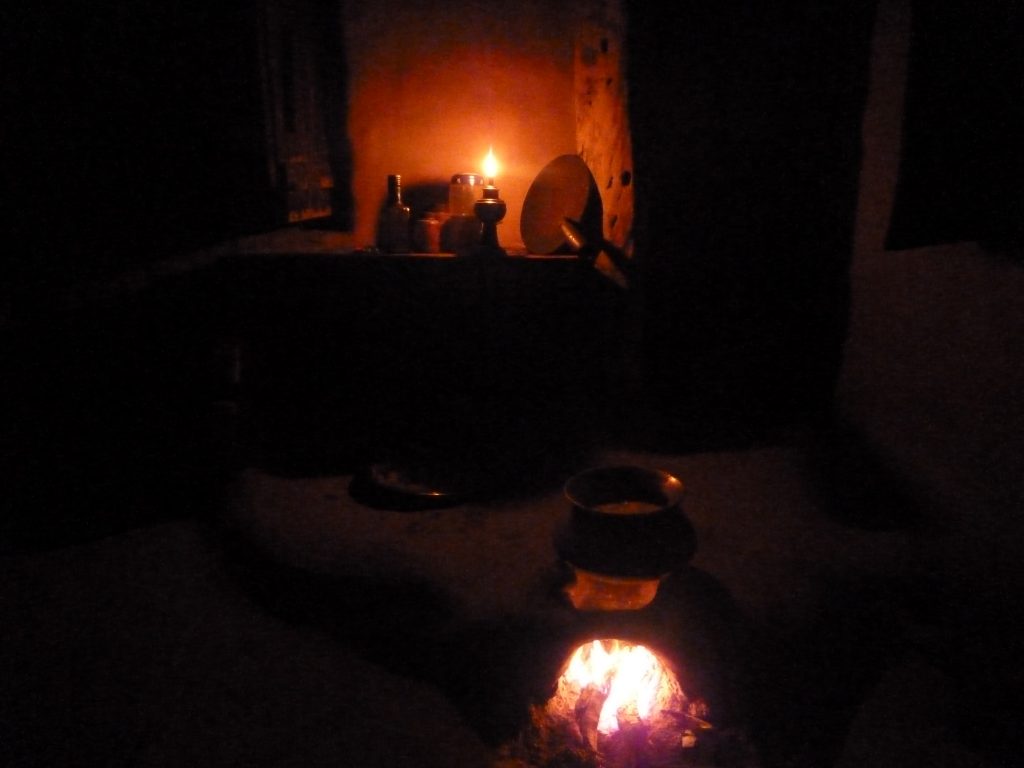
Dr Sam Williamson, Lecturer, Faculty of Engineering, Bristol University
We are energy consumers. Every day we devour energy, and most of the time we don’t even realise it. Before we wake up, our boiler has heated up our water for a hot shower, and at this time of year our homes are warmed. We unplug our mobile phones, switch on the bedroom lights, and boil a kettle to make our morning tea or coffee, before we travel into work, university or school, often by car or bus, consuming energy as we go. And that’s before we think about any of the embodied energy in everything we use. We have direct access to energy through the infrastructure made available to us.

A fire and tuki (kerosene lamp) in a kitchen, Terai, southern Nepal. Photo credit:
Sam Williamson
However this isn’t the same all over the world. The International Energy Agency report in their World Energy Outlook 2016 that 35% of the world’s population still cooks on traditional biomass, with 18% having no access to electricity, and with over 80% of these people living in rural areas. Those that are connected often suffer from frequent power cuts, and have to revert back to traditional methods for lighting and power. 4.3 million people each year die from illnesses attributed to indoor air pollution using traditional fuels for cooking, heating and lighting (World Health Organisation, 2016). Along with the health implications, exposed flames can cause fires in basic housing, and burning of fuel wood and charcoal leads to extensive deforestation causing soil erosion and land degradation. Continue reading

